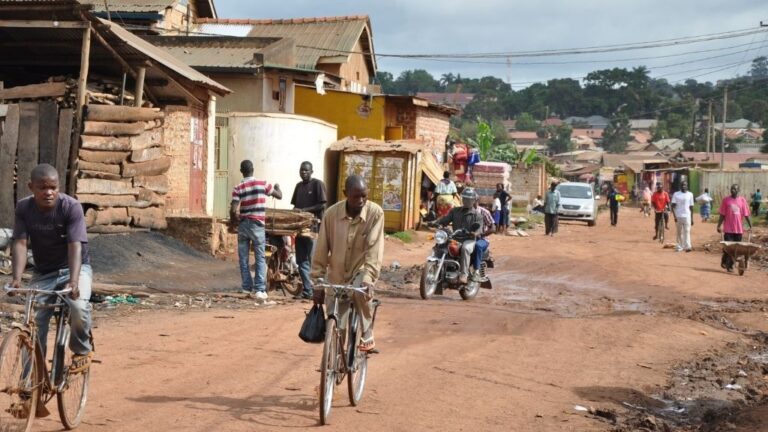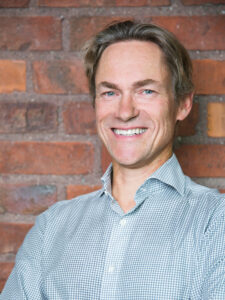The research community around development issues in Sweden has long been multidisciplinary, weak and fragmented. At the same time, funding for development research is lagging behind. Many researchers in the field are now asking themselves: what does the future of development research really look like?
A new study from EBA highlights the landscape for development research in Sweden and the conditions for creating strong environments. This is something that has also been raised in a panel debate organized recently by research network SweDev. The study and subsequent debate on the history and future of development research have provided important insights, but raise even more questions. If researchers and decision-makers are unable to address these issues, it is uncertain whether there is any future for Swedish development research.
Split field with outdated financing structure
The study shows a problematic situation for Swedish development research. The field is fragmented and difficult to define. The researchers testify to a fragile and insufficient funding base and difficulties in reaching policy makers at the policy level. It is also very much a multidisciplinary field. The study confirms a picture that has existed for decades. As Sverker Sörlin and I pointed out in a previous EBA report, a series of evaluations since the 1980s have consistently shown the same thing. The research community around development issues in Sweden has long been multidisciplinary, weak and fragmented, has shown low policy relevance and has largely been isolated from the rest, and much larger, research arena. The explanation can largely be found in an outdated financing structure.
Lack of budget
Development research is currently undervalued by the state. State-funded research for development and poverty reduction in low-income countries is paid for through the development assistance grant. Allocation of funds has largely followed one and the same pattern since the 1980s. Of the development assistance framework - 1 per cent of GDP - three per cent has gone to development research, primarily to support global organizations and to build research capacity in the partner countries.
Of the three percent, one tenth has been used to support development research in Sweden, ie 0.3 percent of 1 percent of GDP. The formula still seems to apply today. The development assistance framework for 2019 was just over SEK 51 billion and the Swedish Research Council, which administers development research, granted a grant of SEK 157 million in the same year. It is impossible to build a strong and multidisciplinary research community on this lean diet. The Swedish Research Council's so-called "U-research" is of course not the only source of funding in this area. But according to the new EBA study, it is the single most important financier.
There is a lack of funding for development research
The state pays for targeted research for a number different policy areas. For energy research, for example, the government allocated SEK 1.5 billion and SEK 850 million in community building and the environment. The total expenditure on all public R & D in Sweden last year was 47 billion. Why so little funding for development research? The truth is that our elected representatives for four decades have not considered that Sweden-based research on the problems of developing countries is worth more than 0.003 percent of GDP. In terms of the entire Swedish research arena (which had a turnover of 171 billion in 2019, most of which is in the private sector), development research is a sandbox company. Suppose that the funding for U-research would miraculously double. Sure, we would get more sand, but we would still be in the sandbox.
Global sustainable development affects all policy areas and research on global sustainability is already funded by all the major research councils, as well as private foundations. But without the perspective of the global South, we will not achieve the goals of climate, biodiversity, justice, gender equality and so on. Researchers with in-depth knowledge of developing countries' problems and opportunities therefore have much to contribute. Sweden has everything to gain from stronger research on and with countries undergoing rapid change where the pace of innovation is high. But then it is required that we development researchers show ourselves relevant for more policy areas and for the broader agenda. The burden of proof is on us.
Many development researchers find it difficult to obtain funding from other funders. They are sorted out or ranked low in the Research Councils' more interdisciplinary assessment committees. As researchers, we can never get around the fact that we need to show both scientific height and societal relevance. At the same time, the major research councils need to review how they can better utilize the special competence that exists among development researchers.
Finally, the funding model established in the 1970s at the same time as SAREC has passed the best-before date. Research on developing countries and poverty reduction is no longer a special interest in development aid. Instead, it is something that concerns the overall policy and research, and is a necessary part of implementing Agenda 2030. Therefore, the government and relevant authorities should consider the following concrete proposals:
- Scrap U-research at the Swedish Research Council and use the funds to build a really strong national expert group that conducts development research under its own auspices for evidence-based policy, for example at today's EBA
- Let the new expert group hire the 100 best development researchers in Sweden part-time. A certain proportion should have their background in developing countries.
- Assign research councils VR, Formas and Forte to better include the perspectives of low-income countries and the development researchers' competence to build knowledge for Agenda 2030
This is how we build a strong research society for inclusive and globally just sustainable development.


